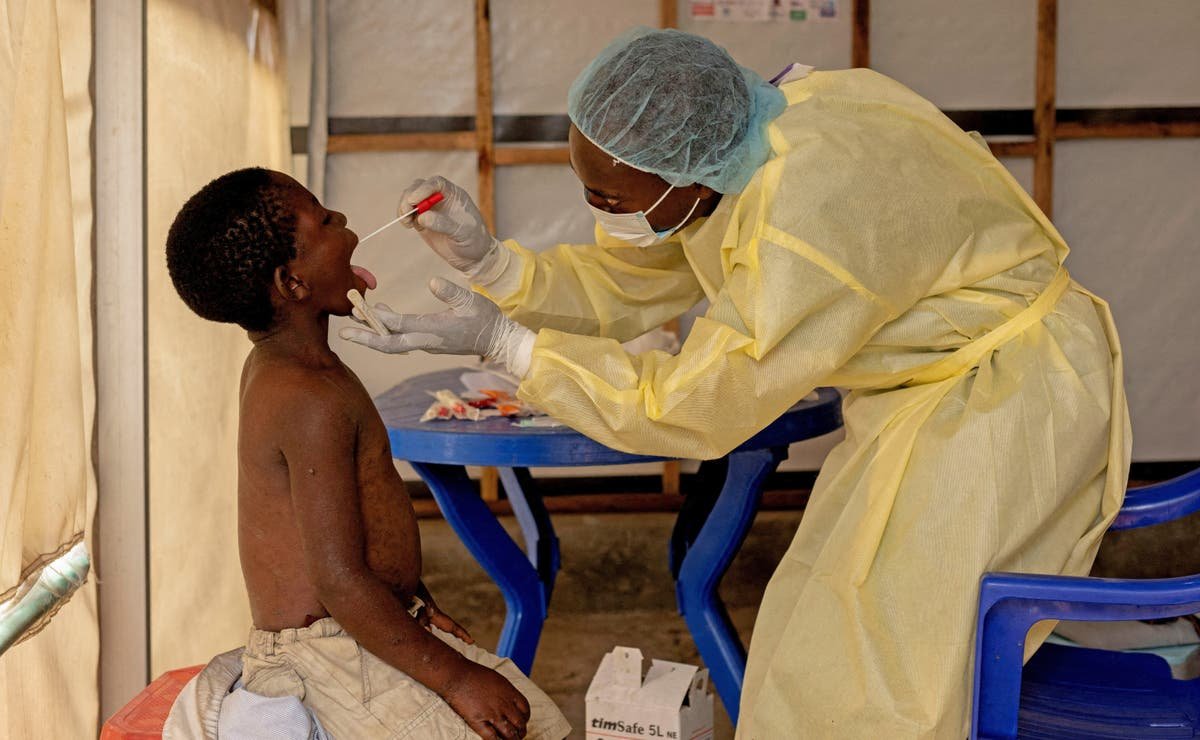
The World Health Organisation on Wednesday declared mpox a global health emergency in response to the growing number of cases in Africa.
Mpox belongs to the same family of viruses as smallpox but causes milder symptoms like fever, chills and body aches. People with more serious cases can develop characteristic lesions on the face, hands, chest and genitals.
Formerly known as monkeypox, the virus that was first identified by scientists in 1958 when there were outbreaks of a “pox-like” disease in monkeys. The name was changed to mpox because it is inaccurate, with scientists suggesting that the virus may have actually originated from rodents.
This week WHO director-general Tedros Adhanom Ghebreyesus described the emergence and spread of a new variant of mpox as “very worrying”.
“It’s clear that a coordinated international response is essential to stop these outbreaks and save lives,” he said, as he raised concerns about the virus’s spread across international borders.
More than 14,000 mpox cases and 524 deaths have been reported in Africa this year alone, with more than 96 per cent of fatalities reported from the Democratic Republic of Congo. This is the second time in two years that the WHO has expressed deep concern about the virus, which first seized global attention in 2022.
The WHO’s emergency declaration is aimed at spurring donor agencies and countries into action. But the global response to previous declarations has been mixed.

Africa CDC director general Dr Jean Kaseya said his own agency’s declaration of a public health emergency was meant “to mobilise our institutions, our collective will and our resources to act swiftly and decisively.” He appealed to Africa’s international partners for help, saying that the escalating caseload in Africa had largely been ignored.
“It’s clear that current control strategies aren’t working and there is a clear need for more resources,” said Michael Marks, a professor of medicine at the London School of Hygiene and Tropical Medicine. “If a (global emergency declaration) is the mechanism to unlock these things, then it is warranted,” he said.

For decades most human cases of mpox were seen in people in central and West Africa who had close contact with infected animals.
The WHO declared its first mpox emergency in 2022 when the virus was confirmed to spread via sex for the first time, triggering outbreaks in more than 70 countries across the world that had never previously reported cases.
Cases plunged dramatically after a sustained campaign to deliver vaccines. However, it remained endemic to certain parts of Africa where the vaccines could not be delivered.
The number of cases this year has jumped dramatically, already exceeding last year’s figure. Last week, the Africa CDC reported that mpox has now been detected in at least 13 African countries. Compared with the same period last year, the agency said cases are up 160 per cent and deaths have increased by 19 per cent.
Earlier this year, scientists reported the emergence of a new form of mpox in a Congolese mining town that can kill up to 10 per cent of people and may spread more easily.
Unlike in previous mpox outbreaks, where lesions were mostly seen on the chest, hands and feet, the new form of mpox causes milder symptoms and lesions on the genitals. That makes it harder to spot, meaning people might also sicken others without knowing they’re infected.
During the global outbreak of mpox in 2022, gay and bisexual men made up a large majority of cases and the virus was mostly spread through close contact, including sex.

Although some similar patterns have been seen in Africa, children under 15 now account for more than 70 per cent of the mpox cases and 85 per cent of deaths in Congo.
Ahead of its emergency meeting, Mr Tedros said officials were dealing with several mpox outbreaks in various countries with “different modes of transmission and different levels of risk.”
“Stopping these outbreaks will require a tailored and comprehensive response,” he said.
The WHO said mpox was recently identified for the first time in four East African countries: Burundi, Kenya, Rwanda and Uganda. All of those outbreaks were linked to the epidemic in Congo.
“This is an outbreak that has been simmering and festering and expanding over the course of a year now,” Gregg Gonsalves, a Yale School of Public Health epidemiologist who has advised the WHO on mpox, was quoted as saying by the Washington Post. “I’m not quite clear why they took so long to do it,” he added referring to the emergency declaration.
“Now that it’s done, we need to move quickly to ensure DRC gets all the requisite tools they need to combat the outbreak.”
The global health agency has released $1.45m from its emergency fund to assist “surveillance, preparedness and response activities” to contain the spread of virus, but would need up to $15m to ramp up the system effectively.






